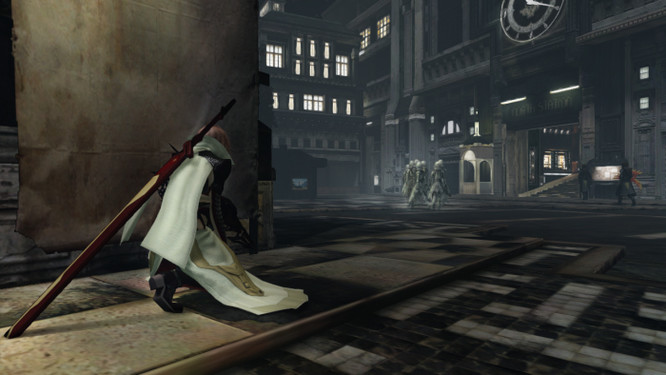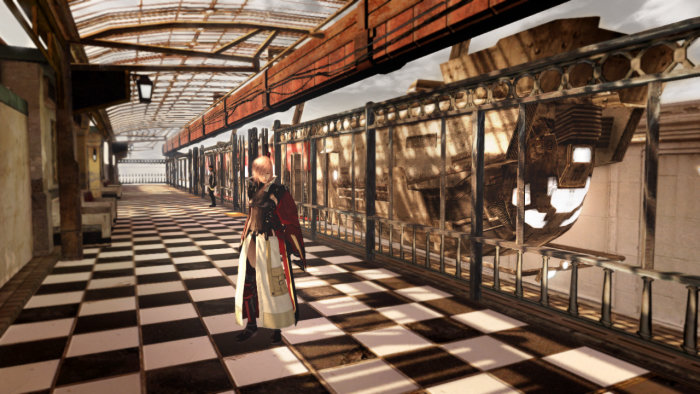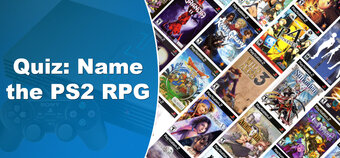They say the best things come in threes - and with the increasingly awkwardly named Japanese role playing series, Final Fantasy, that's certainly true.
While the first game in the Final Fantasy XIII trilogy may have divided fans with its linear gameplay, we revelled in the strategic battle sequences against fantastical forces, gripped by the story and the rag-tag band of rebels we came to know and love. Their tale may have ended in a somewhat cliché manner, but after everything they'd been through, they at least deserved a happy ending.
Unfortunately, along came XIII-2, the sequel nobody wanted - the battle system was much the same but with the unnecessary addition of monster allies, the protagonists' lives were ruined once again, and the ending essentially rendered everything the characters worked for in the first game as meaningless - but hey, at least it left the door open for a sequel. Up steps Lightning Returns, the conclusion of the epic Final Fantasy XIII trilogy, and a game tasked with the impossibility of somehow resolving an overarching plot that never made any sense in the first place.

Crazy capes and giant swords abound.
The story begins some 500 years after the ending of XIII-2, set in a dark and hopeless future where nobody has aged for centuries, and the world is nearing its end, with only 13 days to go. Lightning returns (ha!) as the sole protagonist, having been awoken by the god Bhunivelze as the chosen Saviour, tasked with 'saving' as many souls as possible before the impending apocalypse. Souls are saved by completing both main quests and side quests, with the reward of stat increases, various items/abilities and most importantly, more time in which to save other souls.
The game opens with an impressively slick cinematic of an explosive battle between Lightning and her former friend and ally Snow, before throwing you into what should be a high-intensity chase - however, with long, wordy tutorial explanations which somehow manage to give little to no direction on actually playing the game, it ends up leaving new players and veterans alike end up feeling rather overwhelmed - as well as robbing what would otherwise be a dramatic pursuit of its excitement.

Beware, the headless monk!
For Lightning Returns, the battle system has been completely revamped; instead of the previous sort-of-turn based, sort-of-real-time battles, players can now freely map Lightning's abilities, be these physical attacks or magical spells, to the controller's buttons, and change between three different schemata - combinations of garb (clothing, weapon, shield, accessories) and abilities - on the hop. These schemata each have their own usage gauge, which depletes when abilities are used and recharge when the player is either idle or using another schemata.
Lightning's schemata can be further customised by changing the colour of her garb, with a wide range of colours to choose from. If you have save files from the previous two games on your hard drive, you'll be able to access bonus garb - her Guardian Corps outfit from Final Fantasy XIII and her Etro's Guardian outfit from XIII-2, complete with their respective clothing, weapons and shields. Various other garbs come as a bonus with the Collector's edition or pre-ordering, however garbs are primarily attained through gameplay.
Thanks to the more action based battles, players now also have the ability to block enemy attacks at the press of a button, with perfectly timed blocks briefly staggering an enemy. In addition, the TP (Technical Points) system from the previous games has been replaced with a system of EP (Energy Points), allowing Lightning to unleash special abilities such as Overclock, in which the world slows down while Lightning remains at normal speed, letting you sneak in a greater number of attacks in a given time period. A handful of EP abilities are available from the start, with the rest unlocked as the game progresses or the player fulfils certain requirements.
Outside of battles, the game mostly revolves around completing various quests, with a time limit of 13 days (with one in-game hour equivalent to one real life minute) weighing over your head, in which you have to save as many souls as possible before the inevitable apocalypse. While those desperate to see the story through to its completion can charge straight through the main quests, you'll soon find yourself struggling if you choose to bypass the game's many side-quests, as you'll need the stat boosts that come with them.
Quests largely consist of helping the town's typically useless inhabitants through various fetch quests, slaying monsters and generally tying up any loose ends a person may have, no matter how petty, after which Lightning can save their soul. If failed, quests cannot be reattempted and result in the loss of that person's soul, along with the potential stat increases/items/bonus time received. Unlike previous games in the FFXIII series, and the Final Fantasy series as a whole, there is no EXP system, no level gains, and no stat increases gained from battling monsters, which leaves the game with an odd sense that you aren't ever really 'getting stronger'. Enemies are similarly lacklustre, as you'll keep coming across the same few enemy types over and over again, and battles are far too frequent, especially when you consider you don't actually get anything for doing them. While Lightning Returns features much larger areas to explore than in the original, there are a mere four regions in Novus Chrysalia, which comes as a disappointment after the numerous large, open environments of FFXIII-2. Additionally, the free-running aspects emphasized in the game's trailer are extremely limited and minimal - the only additions to the player movement from the previous games are being able to grab hold of ledges, climb ladders and slide down poles.

Still. It's a looker.
While the game's premise was promising, it's the implementation that makes it hard to enjoy. The ticking clock gives a sense of urgency, yet you're forced to wait for locked gates to open at specified times. The player is forced back to the Arc by Hope every day at 6am, regardless of what you're doing or where you are, which can be extremely frustrating when you're in the middle of completing a quest. There's also a distinct lack of continuity, with little to no explanation as to why Hope has reverted to a younger age (physically) whereas the other characters have remained the same, and while exploration is encouraged, you'll find yourself constantly backtracking over the same terrain.
The various customisation options for Lightning's outfits are great gameplay-wise, however all outfits leave the stoic tomboy dressed up in skimpy, revealing clothing, opposing Lightning's typical serious, reserved nature, and the frequent and repetitive comments of attractiveness from NPCs get really annoying, especially when directed at one of the few decent female characters in the Final Fantasy series. Jerky movement and camera issues in in-game cutscenes also don't help, with bland voice acting from almost the entire cast failing to give any sense of urgency (the lone exception is the pesky Lumina who has a surprising amount of personality in her voice alone). The lack of humour, hope and enthusiasm in a dying world results in very bland characters, and subsequently 'dramatic' moments fall flat, further hindered by writing that is either too awkward, misses the mark completely or is totally irrelevant to the situation.
Above all else, there's also the fact that in this game, there is no party - Lightning is the lone protagonist, unlike pretty much every other Final Fantasy game ever. It's an interesting deviation from the norm (which makes sense, because Lightning, and Lightning alone, is the saviour), but fails in that Lightning isn't a strong enough character to carry the game on her own. Her usual sharp tongue and, quite frankly, bad-ass demeanour, are strangely absent, replaced with her constant bizarre, vague quips that add nothing to her character whatsoever - even Snow has lost his trademark boisterous charm. The only humour to be found is watching NPCs get stuck on walls, and sniggering at Lightning's latest ridiculous outfit (Moogle Lover, anyone?). Other issues include the game's propensity to pit you against bosses too early on, when you don't stand a chance of beating them, and the unrelenting religious allusions directed at the "saviour", which from the very beginning is overdone and rather irritating.

Leaves on the line. Again.
However, that's not to say the game is all bad - Lightning Returns has an excellent soundtrack (both the battle theme and background music), as well as highly detailed, imaginative outfits. The cutscenes are fantastic and beautifully animated, despite being disappointingly lacking in quantity in comparison to the first game, and character models retain the high standard of the previous games.
For all its faults, Lightning Returns suffices as a solid finale, gameplay-wise, to the Final Fantasy XIII trilogy, with excellent battle gameplay, an incredible amount of customisation potential and stunning visuals effectively wrap up the series on a high note. However, its shortcomings in writing and the disappointing, bitter-sweet ending to the series will leave many players wishing that, story wise, Lightning's journey had ended with the cheesy but much deserved upbeat finale of Final Fantasy XIII.
Format Reviewed: Playstation 3

















